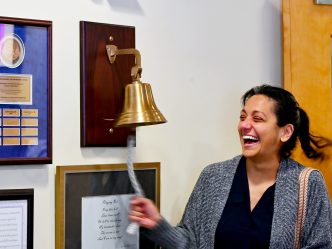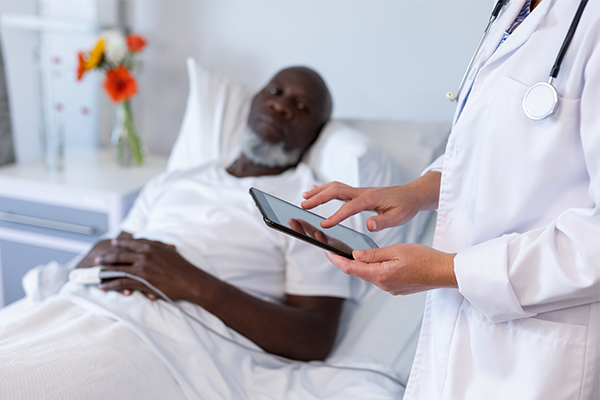Pregnancy and the first weeks of motherhood can be joyous, but they also carry significant risks of cardiovascular or mental health complications. In Georgia, the danger that women face is greater than anywhere else in the United States.
The Peach State’s rate of 46.2 maternal deaths per 100,000 live births is the highest in the country, according to a 2018 report by America’s Health Rankings that used data from the Centers for Disease Control and Prevention. Tragically, a committee of experts established by the Georgia General Assembly found that as many as 6 in 10 pregnancy-related deaths in Georgia from 2012–2014 were preventable. Lack of access to care is a major challenge.
Mobile Monitoring
Nearly half of Georgia’s 159 counties lack an OB-GYN, according to a 2019 Georgia House Budget and Research Office report. To make geography less of a barrier for patients, Marlo Vernon, PhD, assistant professor in the Department of Medicine at the Medical College of Georgia, Georgia Cancer Center, Cancer Prevention, Control, and Population Health, developed the Vida app. Using the app, physicians can monitor their patients more closely during pregnancy and the postpartum period by collecting a variety of real-time data, including shifts in blood pressure and patient-reported mental health symptoms. That information can help women and their physicians determine when care is needed.
“New mothers in our state need better access to prenatal and postpartum care, and the Vida app is a tech-based product that will help them make informed decisions about their care,” Dr. Vernon said. “My goal for the Vida app is not only to improve communications among patients and their providers, but also to alleviate health care barriers for women living in rural areas with limited access to on-site prenatal care.”
The Vida app took top honors in the first two phases of a three-phase federal government competition designed to identify tech-based solutions to monitor pregnant women’s health. Dr. Vernon is working with Augusta University Medical Center and other partners to test the app’s prototype, and she plans to present her findings during the competition’s final phase this spring. Testing with a larger group of patients may follow.





